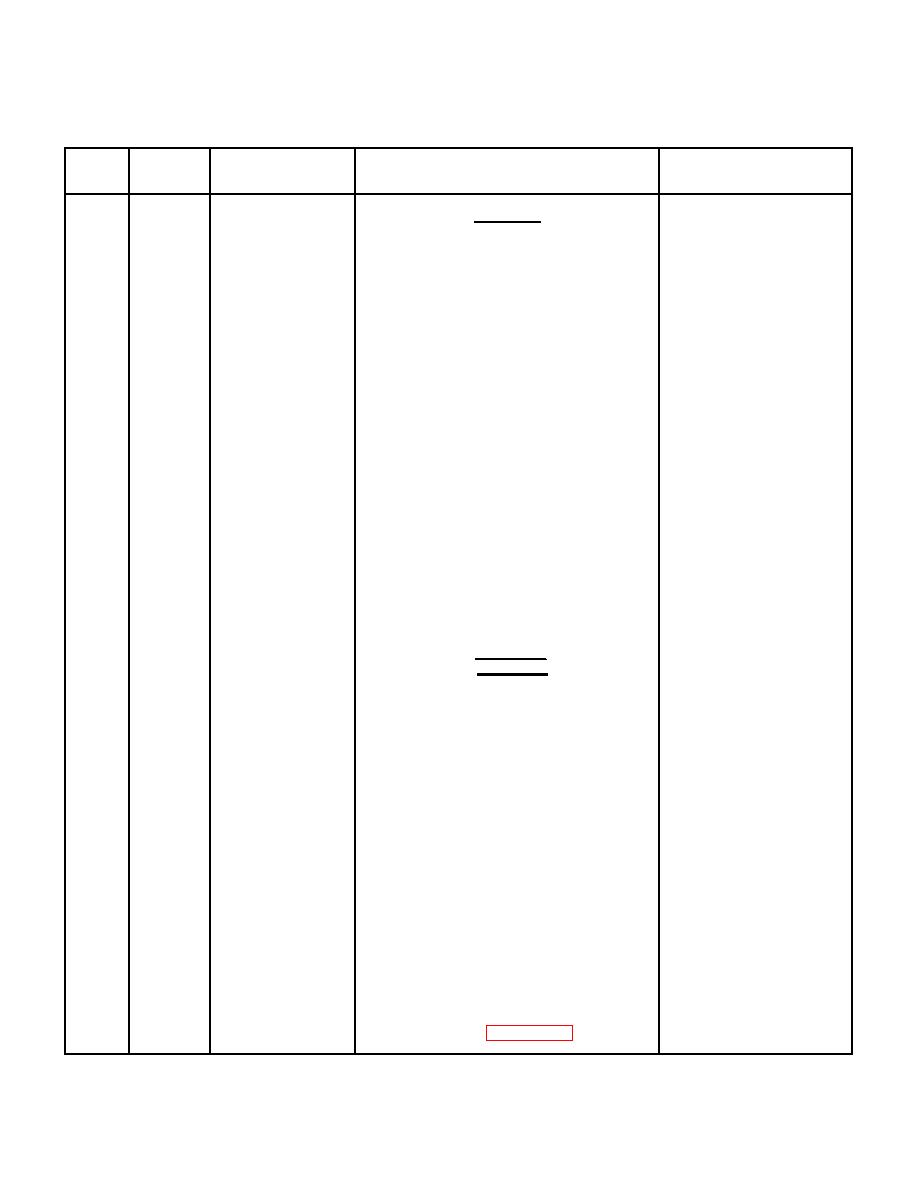
| Tweet |

Custom Search
|
|

|
||
 TM 9-2330-326-14&P
Table 3-1. Operator/Crew PMCS (Cont.)
ITEM
ITEM TO CHECK/
EQUIPMENT NOT
INTERVAL
PROCEDURE
NO.
SERVICE
READY/AVAILABLE IF:
CAUTION
Rust near wheel nuts can mean
low torque.
Check wheels (inner/outer) and
hubcaps for grease leakage.
When leakage is initially found,
clean off all grease and recheck
after operation. If grease leakage
is still evident, notify Unit
maintenance.
NOTE
All wheel flange nuts have
right hand threads.
Cold radial tire pressure
should be 115 psi (793 kPa) for
all tires.
11
Before
Radial Tires and
a.
Inspect tires, including spare, for
Tires are not properly
Wheels
proper inflation, unusual tread wear,
inflated, damaged, or show
sidewall damage, cuts, foreign
unusual wear.
objects, valve stem damage, valve
caps, and loose/missing dust shield
plugs on wheels.
WARNING
Make sure spare tire is secured in
Securing hardware is
carrier and securing hardware is
unserviceable or missing.
present. Failure to secure these
properly can result in injury or
death to personnel.
b.
Check wheels for damaged rims,
Wheel rims are damaged,
rust, or leaking grease.
rusty, or shows signs of
leaking grease.
c.
Check for loose or missing wheel
nuts. Notify Unit maintenance. All
the nuts mus t be present and
torqued to specifications.
Re-torque wheel nuts at first 100, 500,
Nuts are loose or missing.
1000 miles (161, 805, 1609 km), and
Wheel nuts not torqued.
every 6000 miles (9656 km) thereafter
unless wheel is changed out. Then use
re-torque
schedule.
Notify
Unit
maintenance. (See Appendix H-22.)
3-7
|
||
 |
||